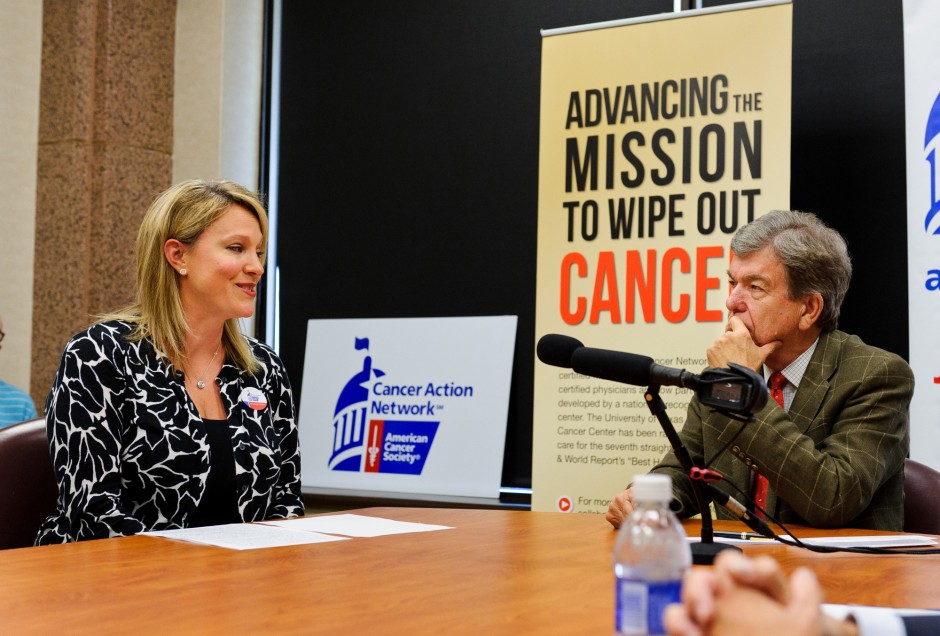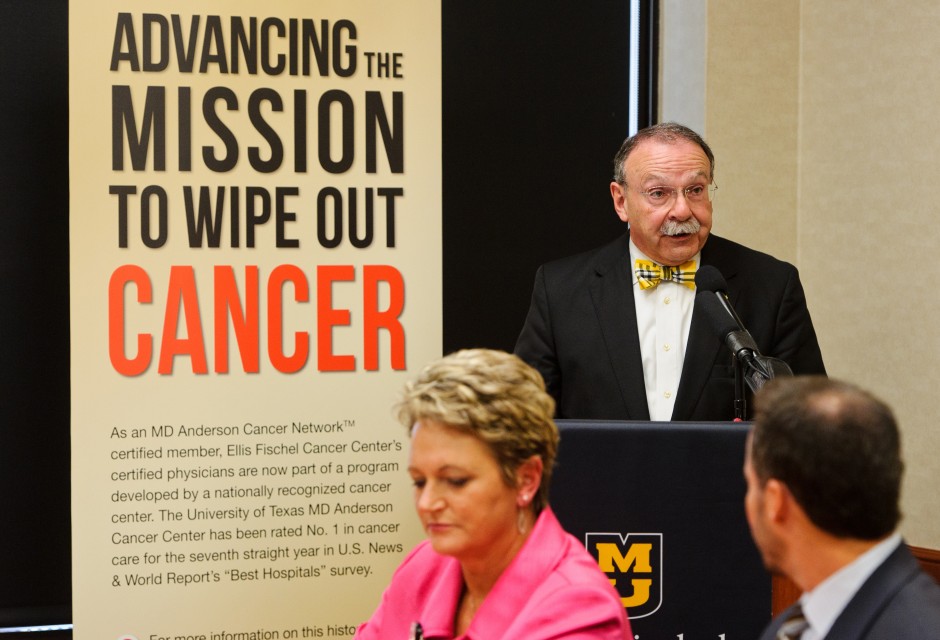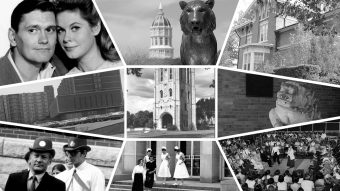
Nichole Nichols of Columbia lost her 41-year-old husband, Ross, to brain cancer on Jan. 30, 2015. She was one of several speakers at a gathering Aug. 20 at University Hospital who stressed the importance of federal funding for cancer research.
The event was part of the One Degree campaign. It was launched last March by the American Cancer Society’s Cancer Action Network, a nationwide effort to raise awareness to increase medical research funding at the National Institutes of Health. The goal is to raise $6 billion over two years, with $1 billion allocated for cancer research at the National Cancer Institute.
Attending the event were Sen. Roy Blunt (R-Missouri), who supports additional federal funding for cancer research, medical school Dean Patrice Delafontaine, two University of Missouri cancer researchers and Chancellor R. Bowen Loftin.
Loftin thanked Blunt for his efforts and said that grants from the National Institutes of Health are vital to funding MU cancer research.

Carolyn Henry, a professor of oncology, spoke of MU’s medical successes in the fight against cancer, such as the development of Quadramet, a pain reliever for human and animal bone-cancer patients. A comparative-medicine approach to cancer is important because of the malady’s complexity. “Cancer is hundreds of diseases, hundreds of mechanisms,” Henry said.
Her voice cracking, Henry said her talk was personal. The previous day she had lost her decades-long best friend to bladder cancer, a condition Henry has studied.
During most of the 45-minute roundtable, people whose lives have been impacted by cancer told their stories.
Nichols, her eyes red with tears, spoke of Ross’s courage during his three-year battle with brain cancer and the challenges the family has faced. Her young sons, Noah and Henry, looked despondent as she spoke.
After one year of chemotherapy, Ross seemed to be improving. But an MRI months later showed that the tumor was now grade 4 glioblastoma, which is extremely aggressive. More chemotherapy supplemented by radiation treatments began, but Ross didn’t respond well. During his final weeks, Ross sometimes slept 20 hours a day.
“Research on this type of cancer is essential,” Nichols said. A research breakthrough would offer the family “a purpose for our suffering.”
Also speaking were Allison E. Johnson, an MU senior and survivor of bone cancer, and Mary Foster, a resident of Fulton and survivor of melanoma.
Foster said that many survivors live in dread that the cancer will return. “I feel like a time bomb, waiting for it to come back,” she said.
At the end of her talk, Foster turned to Henry and MU cancer researcher M. Frederick Hawthorne.
“I ask you not to stop your work,” she said.



